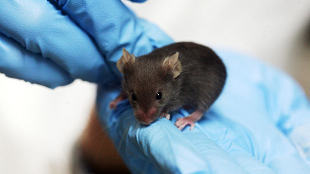The mere presence of a male scent, whether it be that of a male researcher or some other mammal, is enough to trigger a physiological stress response in mice that can result in analgesia. But the same is not true of a female’s smell, suggesting that the sex of the researcher handling the animals could influence the results of rodent research.
The study, published on April 28 in Nature Methods, “has huge implications,” said Robert Hallock, a taste and smell researcher at Skidmore College in Saratoga Springs, New York, who was not involved in the study. “The so-called external validity of research is diminished here. One lab has all male experimenters, another lab has all female experimenters, and it may affect the replicability of a study.”
“It’s definitely a study that will impact the field of behavioral phenotyping for biomedical research,” agreed behavioral biologist Lars Lewejohann of the University of Osnabrück, who also did not participate in the research….







